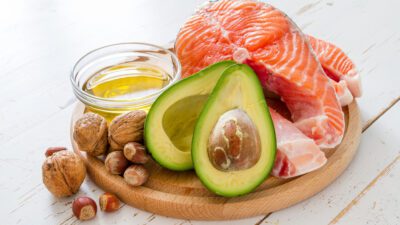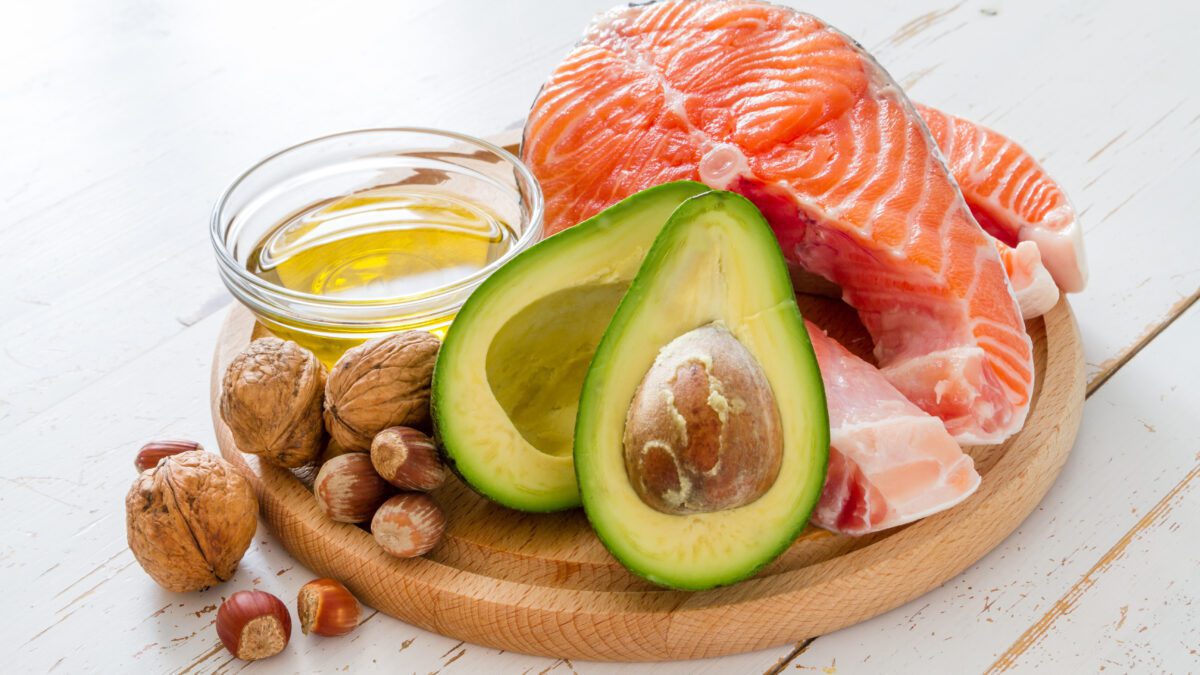



Exercises such as weight lifting, resistance training and cardio are excellent ways to increase muscle mass but nutrition also plays an important role in gaining muscle.
Muscles are highly specialised contractile cells that are made up of water and one-fifth of protein. Therefore to maintain muscle size and build muscle, it is important to regularly consume protein-rich meals and plenty of water.
Nutritionists recommend that you consume the following foods along with an exercise routine to have optimal muscle gain;
Eggs are a reliable source of protein, fats and micronutrients which are all essential for basic nutrition. Consuming eggs during sports training can help give better training results as the proteins in eggs can improve skeletal muscle synthesis (1). They also contain vitamin B12 which is important for the breakdown of fat and for muscle contractions.
These are an excellent source of vitamin E which acts as a potent antioxidant. This prevents free-radical damage following an intense workout session which subsequently helps muscles recover and promotes muscle growth. One study has found that you can safely consume two handfuls of almonds a day without gaining any weight. Almonds also contain magnesium which is known to be involved in energy metabolism and the synthesis of protein (2).
Yoghurt contains protein and carbohydrates which can aid in muscle recovery and growth following a workout. Yoghurt contains conjugated linoleic acid which is a special form of fat that has been proven to reduce body fat levels in some studies (3).
Simple half a cup of cottage cheese contains fourteen grams of casein protein and less than two grams of fat. Casein protein is slow digesting which is ideal for maintaining muscle. Cottage cheese also contains vitamin B12, calcium and many other vital nutrients.
An excellent source of carbohydrates, due to the low glycaemic index (GI) value of oatmeal as it is minimally processed. Consuming oatmeal can increase your satiety and decrease hunger levels which subsequently leads to fat loss. Low GI foods such as oatmeal can provide a constant source of carbohydrates for preserving existing muscles.
Beef is a rich source of protein, iron and zinc which are crucial for building muscle. It is also an ideal source of creatine, which can boost energy supplies for a weight lifting session. Beef also contains the mineral selenium, which is an important antioxidant that can help muscles to recover after a high-intensity workout session. Deficiency in selenium is associated with muscle pain and weakness (4). For those seeking to optimize their nutritional intake, considering grass-fed beef testicles, along with traditional beef consumption, can offer a unique and targeted approach to harnessing the benefits of this nutrient-rich source.
A lean one hundred gram slab of chicken can provide thirty grams of protein and only four grams of fat. Not only does chicken taste great but it also has a huge versatility in its meal options which is why many athletes regularly include chicken in many of their meal plans.
Salmon is full of high-quality protein and omega-3 fatty acids which can reduce the breakdown of muscle protein (5). To build muscle after a workout, new protein needs to be stored faster than old protein which is broken down. Salmon can also reduce your risk of heart disease and diabetes; many studies show that omega-3 fatty acids have beneficial effects on insulin sensitivity (6).
The monounsaturated fat which is found in olive oil has been shown to prevent muscle breakdown (7). Olive oil is also widely praised for its numerous health benefits such as lowered rates of heart disease and a reduced risk of osteoporosis (8).
Also learn: Best amino acids for muscle growth
For more information on the best foods for muscle gain, see our muscle building nutrition course.
References